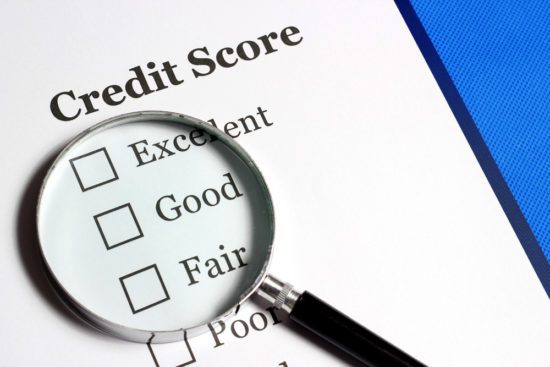
Another common problem when it comes to credit is establishing credit. Do you start out with a score of zero? What is the starting credit score? Let’s have a look at how credit scores start and how you can build your credit in order to get a higher credit score.
What is the starting credit score?
A credit score compiles your credit history, and as such, you need a credit history to have a credit score. Once you get your first credit card, or personal loan in your name, a credit report gets created. It takes over six months for that to happen. That means you don’t get a starting credit score of 0 when you turn 18, and then build it up.
It is not until you start using credit that you start building your credit history, and a credit score can be calculated. Until then, a search for your consumer report will return a “no record found” since there is no data available. The starting credit score is no credit score.
That means two things:
- It might be hard to get a first line of credit without a credit score, and
- It is very important that as soon as you do get credit, you do everything right to get a high credit score.
The first bank or financial institution that will agree to lend you money will be taking a risk. Since you have no starting credit score, they have no way of knowing how likely you are to repay the money you are asking to borrow. It is customary for them to ask for someone to co-sign the loan, usually a parent or another family member.
Now that you have got your first loan, you have to be worthy of the trust granted to you by the bank.

The starting credit score takes a few months
When you are approved for your first loan or credit card, your lender gives you a line of credit, that gets registered with credit reporting agencies. However, you still don’t have a credit score. Since you have not even made your first payment, the agency has no way of knowing how you will behave.
That is why the starting credit score takes a few months to become available. In the meanwhile, you are “Too new to rate”. After around six months, you will get your first credit score. It will be different for everyone, based on several factors, such as:
- How good you have been at repaying your debt
- Whether you have made minimum payments or overpaid
- If you are still in debt at that time
- If you carry a balance on your card, or just have an open line of credit
- Your debt ratio, how much you borrowed compared to your available credit
- The age of your credit history
How much is the starting credit score?
Your starting credit score will not be zero, because the agency has enough data after six months to report on your credit behavior. Credit scores start around 300 anyway, and go up to 850. A credit score of 300 is disastrous, but unlikely to happen to you in six short months. The same way it would be too early to grant you a credit score in the 800s, that would be near perfect.
You should be somewhere in between. Part of your credit score is based on how long of a track record the agency has, so that will affect you negatively at first. But as you keep making payments on time every month, you should have your starting credit score increase by a few points with each payment.
How do you increase your starting credit score?
Like I just mentioned, one way to increase your starting credit score is simply to be patient, and give it time. The longer your track record, the better. Assuming you make at least the minimum payment on your debt, of course!
Here are a few more tips to increase your starting credit score:
- Keep your balances low. If you get a credit card with a $1,000 limit, try to keep your balance under $300. Or even better, pay your card in full each month.
- Don’t open a lot of accounts too fast. Use just what you need.
- Never miss a payment. That goes without saying. But if you do call your company, make the payment, and ask they remove the late payment warning that would affect your credit score. The easiest way to forget about it is to set an automatic bill payment every month for your credit card balance.
- Get the best rate you can on a credit card. Having high interest debt increases your risk of not being able to repay what you owe.
- Keep a line of credit open. Instead of closing a credit card because you’d rather use debit, keep it and make a small charge on it each month, that you pay in full. That will help show a good credit history a few years from now when you want to buy a house or get a student loan for college.
- Check your credit report regularly for any errors and have them corrected
Your starting credit score is very important because as a young adult, you are likely to need more money soon. Once you have a mortgage and a couple of credit cards, you can relax about your credit score, since your borrowing needs are covered. However, if you get a good start, you will get the lowest interest rates on your debt, which will in turn help you start your adult life on the right foot. So don’t mess with your starting credit score!
Photos: CafeCredit.com
Comments